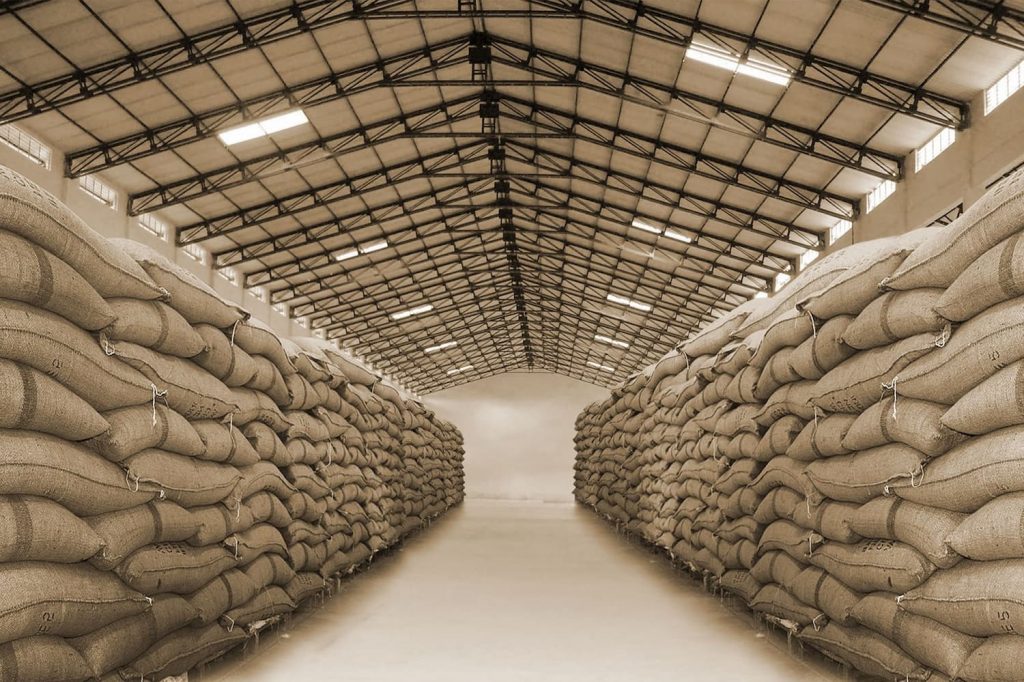The Warehouse Receipt System (WRS) is transforming agriculture in Kenya by addressing one of the biggest challenges faced by smallholder and medium-scale farmers: post-harvest losses and limited access to markets and finance. Through WRS, farmers can store their produce in certified warehouses, receive a warehouse receipt, and use it as a tradable and bankable instrument. This model not only stabilizes incomes locally but also positions Kenya more strongly in global agricultural markets.
How WRS Works – Step by Step
1. Farmers deliver their crops (maize, wheat, coffee, tea, avocados, beans, etc.) to a certified warehouse.
2. The warehouse inspects, grades, and certifies the produce.
3. A warehouse receipt is issued, confirming the quantity and quality stored.
4. Farmers can use this receipt as collateral to access credit from banks.
5. The receipt can also be traded on the National Commodities Exchange (NCMCX), enabling farmers to sell when prices are favorable.
6. Buyers (millers, exporters, processors) purchase directly through the system, ensuring transparency and fair pricing.
Why WRS is a Game Changer
– Reduces post-harvest losses by ensuring safe storage.
– Prevents distress sales by allowing farmers to wait for better prices.
– Provides access to affordable credit using warehouse receipts as collateral.
– Improves transparency and trust in commodity markets.
– Enhances Kenya’s competitiveness in global agricultural exports.
Global Perspective on WRS
WRS is not unique to Kenya. Across the globe, the system has transformed agricultural value chains:
– In Ethiopia, WRS revolutionized the coffee sector by introducing standardized grading, transparent trading, and access to finance.
– In India, WRS for grains reduced post-harvest losses and stabilized farmer incomes by allowing them to avoid distress sales and access credit.
While Kenya leads the way regionally, the global track record of WRS—from Ghana to Colombia—underscores the system’s transformational potential in enabling agricultural finance and market access.
(See the World Bank’s analysis here.)
Kenya’s Position in Global Agricultural Markets
Kenya is already a global leader in agriculture:
– The world’s leading exporter of black tea.
– A top supplier of avocados to Europe, the Middle East, and China.
– An important exporter of coffee to Europe and the United States.
Through WRS, Kenyan farmers can consistently meet international buyers’ strict requirements for quality, traceability, and sustainability.
Alignment with Global Trade Standards
WRS also ensures compliance with international regulations such as the European Union’s Deforestation Regulation (EUDR), which requires strict traceability of agricultural products from end of 2025. With proper record-keeping, grading, and certification, WRS strengthens Kenya’s reputation as a reliable and sustainable supplier to the global market.
For a global perspective on WRS design, benefits, and the importance of legal frameworks, (see the FAO’s international overview on Warehouse Receipt Systems).
Conclusion
The Warehouse Receipt System is more than just a storage and trading mechanism—it is a pathway to financial inclusion, better incomes, and global market integration for Kenyan farmers. With its proven success globally, WRS is set to be a key driver of agricultural transformation in Kenya and beyond.
LESAMA LIMITED
+254700215848
info@lesama.co.ke
www.lesama.co.ke





